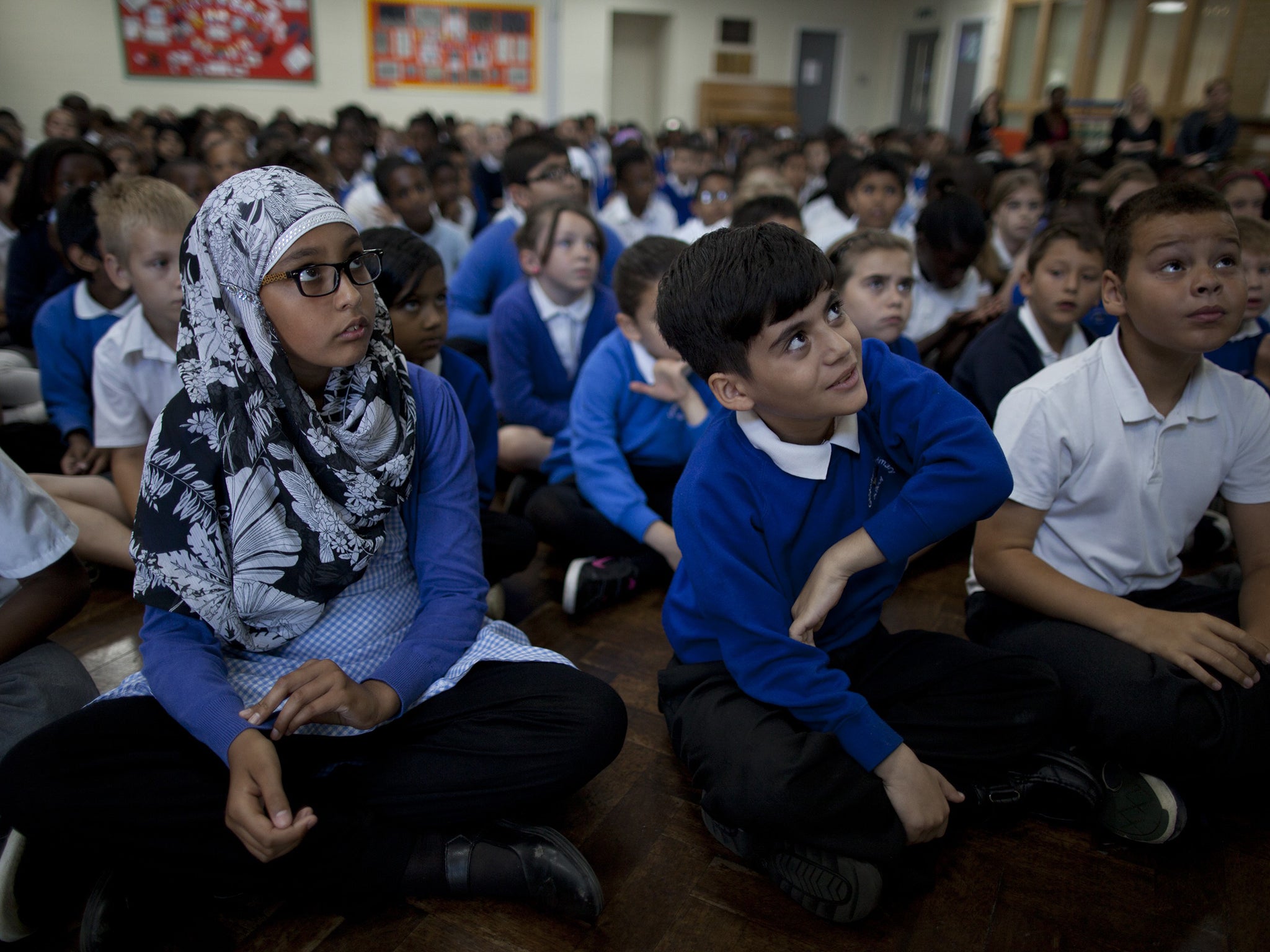Britain's Biggest Primary School, TV review: Victor from Bulgaria might have broken English, but he's still a class act

Your support helps us to tell the story
From reproductive rights to climate change to Big Tech, The Independent is on the ground when the story is developing. Whether it's investigating the financials of Elon Musk's pro-Trump PAC or producing our latest documentary, 'The A Word', which shines a light on the American women fighting for reproductive rights, we know how important it is to parse out the facts from the messaging.
At such a critical moment in US history, we need reporters on the ground. Your donation allows us to keep sending journalists to speak to both sides of the story.
The Independent is trusted by Americans across the entire political spectrum. And unlike many other quality news outlets, we choose not to lock Americans out of our reporting and analysis with paywalls. We believe quality journalism should be available to everyone, paid for by those who can afford it.
Your support makes all the difference.A lot has changed since we were at school. For a start, kids these days can hardly get through morning break without some eager TV documentary-maker sticking a camera in their faces.
There's Educating the East End, Tough Young Teachers and now Channel 5's new four-part series, Britain's Biggest Primary School, which just about avoids ripping off the others by observing change writ large at the super-sized Gascoigne Primary in Barking, east London.
Aside from the sheer number of pupils (around 1,100), Gascoigne's challenges include a high proportion of children with English as an additional language. When head Mr Garton started in 1997, only 10 per cent of pupils were in this category, now it's more like 90 per cent.
One of these is Victor from Bulgaria. It's tough being 10, but even tougher when breaktime involves traipsing around the playground pleading in broken English to be involved in other children's games. To his credit, Victor valiantly continued to speak up in class, even when he wasn't making much sense, and it worked. Since the programme was filmed over six months, we had the opportunity to appreciate his impressively speedy progress.
Lee from Norfolk is a native English speaker, but also had problems settling in. His disruptive behaviour made more sense after assistant head Ms Murphy invited Lee into her office to discuss the first anniversary of his mother's sudden death. "Now and again you get children, who just touch your heartstrings, you know?" said Ms Murphy after he'd left, wiping a tear. She looked exhausted, as did newly qualified teacher Mr McNally, but both of them found their reward in watching children flourish under their care.
Plus there's always an inventive playground clapping rhyme to cheer you up. The cameras caught four girls performing this catchy ditty: "Girls go to Mars/ To be superstars/ Boys go to Jupiter/ To be more stupider".
Join our commenting forum
Join thought-provoking conversations, follow other Independent readers and see their replies
Comments